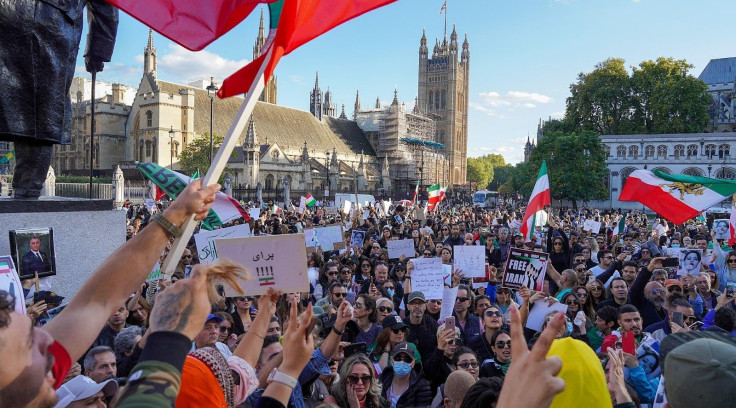The Dangers of Importing Middle Eastern Battles to the Streets of the UK
Imported Middle East tensions are spilling onto UK streets, raising concerns about violence, division, and the challenge of maintaining peace in a multicultural society.

The streets of the UK have recently become a battleground for competing ideologies, as demonstrations in support of and against various Middle East conflicts have spilt into the public sphere, whether on Palestine, Israel, Lebanon or Iran.
These protests reflect the turbulent political landscape in the Middle East, but the risks of importing these ideological conflicts to the UK are undeniable.
As the UK continues to be home to a diverse and multicultural population, such disputes must remain in the realm of diplomatic discussion rather than being brought into the streets, where tensions can quickly escalate into violence and division.
Some of the more virulent demonstrations that have descended into violence and brooding animosity are surrounding the Islamic Republic of Iran and its policies. The Ayatollah regime has faced significant opposition both at home and abroad, particularly following the death of Mahsa Amini in September 2022.
The 22-year-old Kurdish woman's death while in the custody of Iran's 'morality police' sparked a global outcry, leading to widespread protests within Iran and a wave of international solidarity. As the protests spread globally, the UK witnessed a sharp increase in demonstrations both in support of the Iranian regime and against it.
On one side, supporters of the Iranian government, often made up of individuals with strong familial or political ties to the country, argue that the US-led sanctions and external pressures have caused unnecessary hardship to the Iranian people.
They believe in the legitimacy of the Iranian leadership, and their protests often call for resistance against what they perceive as foreign interference in Iranian sovereignty. These groups have rallied behind those who advocate for a strong national identity and preserve the Islamic Republic's values.
On the other side, anti-Iranian government demonstrators, many of whom are exiles, refugees, and members of Iranian opposition groups, argue that the Iranian government is oppressive, particularly in its treatment of women, ethnic minorities, and political dissidents.
Prominent figures in these demonstrations include Iranian human rights activists, journalists, and political exiles such as Shirin Ebadi, the Nobel Peace Prize laureate, and Masih Alinejad, an outspoken advocate for women's rights in Iran. These protesters have passionately condemned the Iranian regime for its human rights violations, calling for regime change and greater freedom for the Iranian people.
While both sides are entitled to express their views, the UK must tread carefully in navigating these protests. The risk lies in the potential for these demonstrations to ignite ethnic, religious, and political tensions in an already complex multicultural society. There is a genuine concern that these demonstrations could be hijacked by extremists, both pro- and anti-regime, leading to violence and division among the UK's diverse communities.
'Protesters campaigning against austerity wearing Guy Fawkes masks clashed with police' by Andy Thornley is licensed under CC BY 2.0.
Unfortunately, this has already happened; in one case, during a protest in London in 2022, a group of anti-regime demonstrators clashed with pro-regime supporters near the Iranian Embassy, leading to a few reported injuries. Another more recent example was when, during a demonstration involving both sides in May 2024, one prominent supporter of the Iranian regime, Sayed Ahmed Alwadaei, was reportedly photographed taking part in an attack on Iranian dissidents in London, which left one victim with severe spinal injuries.
While individual cases of violence are for the police to decide the best course of action, the public and media also play a significant role in framing these issues, often giving disproportionate attention to the most extreme elements of both sides.
This can inflame emotions and encourage polarisation, further deepening divides in British society. The debate, however, should not be reduced to black-and-white narratives of 'good' versus 'evil.' The situation in Iran is complex, with internal and external factors influencing the nation's policies and direction.
Ultimately, the UK must remain a neutral space where dialogue, understanding, and peaceful protest are encouraged but where imported geopolitical conflicts are kept in perspective. The focus should be on finding common ground, fostering inter-community dialogue, and ensuring that the streets of the UK are not hijacked by battles that belong to another region entirely.
Only through mutual respect and peaceful engagement can the UK remain a model of tolerance and unity in the face of such challenges.
© Copyright IBTimes 2025. All rights reserved.





















